Not only a lack of contact with family and friends but also the lack of cultural offers during the pandemic seems to significantly impact DigiHero’s participants. Following are DigiHero’s first interim results.
Preface
These results are based on data provided by the first 4,000 participants of the DigiHero Study who had signed up by the end of Februrary (2021). The majority of said participants answered our questions in the first half of February. Excerpts of these results have also been published in the Mittledeutsche Zeitung.
Perception of and Attitude toward Restrictions
The first of the following tables highlights the kind of situations participants experienced as particularly restrictive. The first of its columns shows the percentage of participants affected by a particular circumstance. Many of these circumstancial issues concern alomost everybody. However, certain other issues naturally only affect a fraction of the participants and the population overall (e.g. shutdown of daycare centers).
In the following three columns, we can see how the affected participants assessed the respective issues on average (median value). Closures of daycare centers only affected fairly few people, most in the age range of 18-39. Similarly, it can be assumed that the closure of educational institutions, too, was a major problem for parents of trainees and students of all educational stages. In contrast, the 60+ age group, if affected at all, did not experience these issues as particularly restrictive. However, almost everyone, across all age groups, suffered from contact with friends and family (outside their own household) being regulated and limited.
Looking at all the different fields of pandemic-related restrictions, it becomes clear that the age group of 18-39 year olds was affected the most, overall – here, childcare (due to school and daycare closings) was of particular importance as an issue. Nevertheless, in general many people experienced the cancellation of cultural events as a significant loss. The lack of cultural events, in combination with the lack of opportunities to do sports together with other people, were rated to be almost as severely limiting as the restrictions on contact with friends and family.
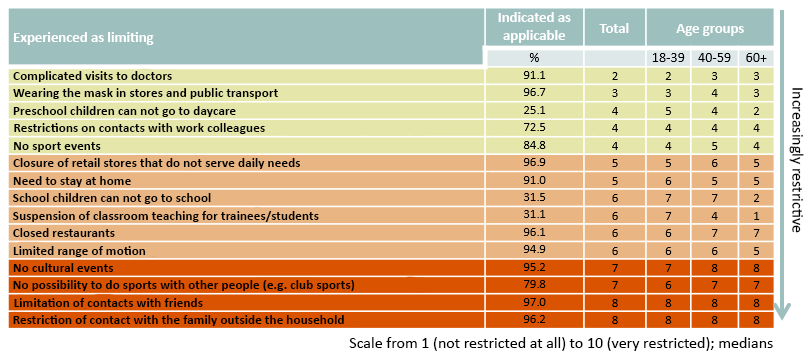
The next table illustrates how much the participants felt impaired by the different measures taken to control the pandemic. It is of note that not all measures taken applied to every participant in the study equally. For example, many felt negatively affected by th travel restrictions, where it can be surmised that the younger population had to suffer more as a result of the regulatory procedures.
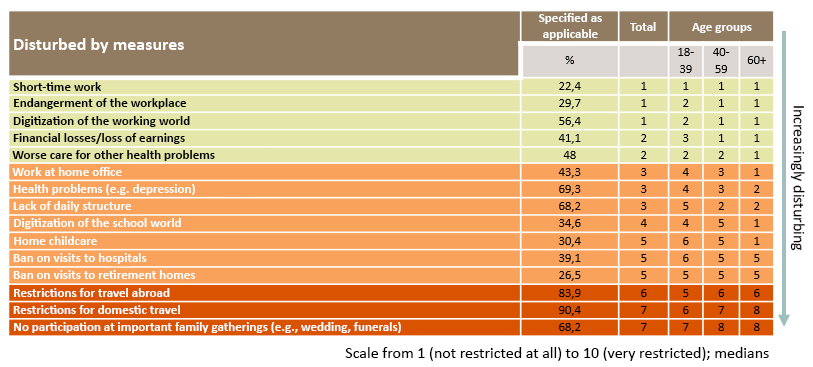
Perspectives on and Evaluation of Regulatory Measures
Nevertheless, the majority of paricipants thought the regulatory measures to be appropriate. Furthermore, the number of people believing them to be too lenient was greater than the number of those who judged the measures to be too strict. Besides these general assessments, there were also notable differences in the evaluation of individual measures: The approach to and handling of restaurants, bars, pubs, leisure facilities, and cultural events as a whole during the pandemic were of particular note.
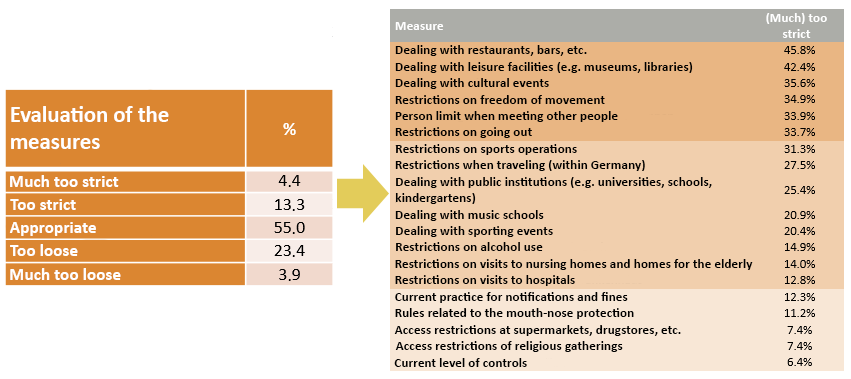
Opinions on Political Decisions
(Majority of data from the first half of February 2021)
Many participants were thusly able to understand major political decisions in relation to the pandemic well; only a minority of participants believed that restrictions should be loosened or lifted entirely. Likewise, only a minority expressed support of these critical voices.
About a quarter of participants were of the opinion that no restrictions should apply to vaccinated people.
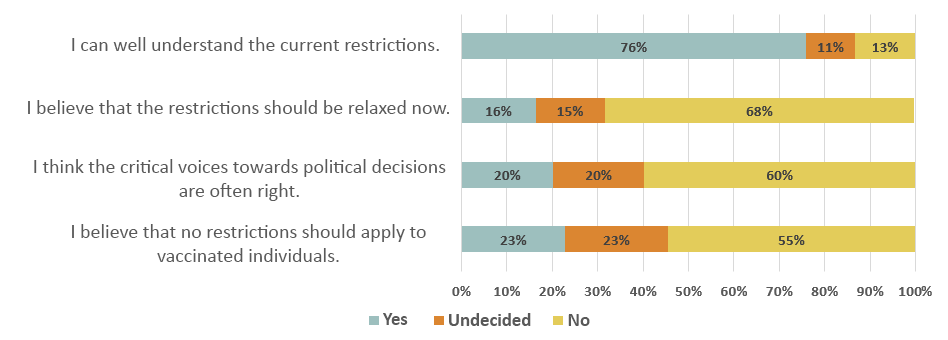
“Home Office” Experiences
For half of the participants working from home during the pandemic, it was the first time ever using a home office. Correspondingly, the number of people working from home doubled overall in comparison to before the pandemic.
A fifth of those worink from home were very dissatisfied with their situation. Who exactly is dissatisfied, and why, are issues we seek to evaluate in the future.
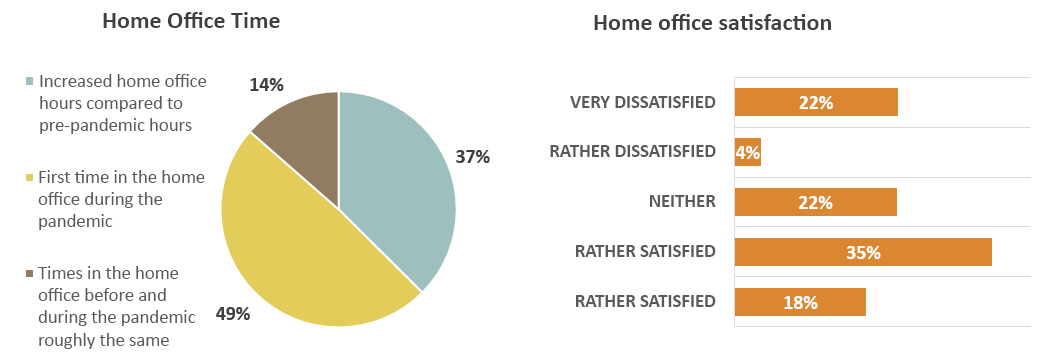
Data evaluated and interpreted by Bianca Klee, Saskia Glasauer, and Dr. Cornelia Gottschick.



